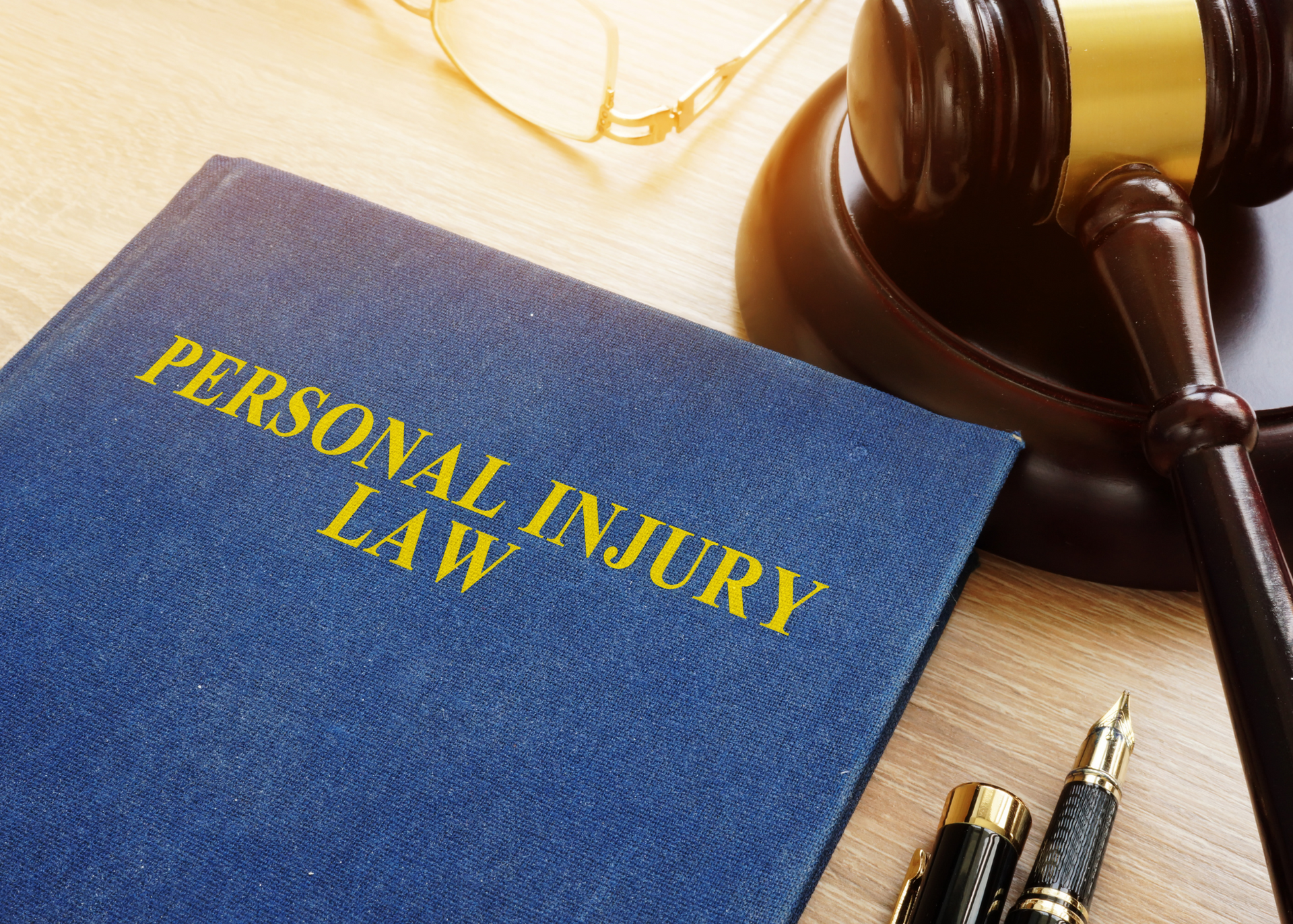What does a personal injury attorney do?
When you hear the term "personal injury lawyer," you might wonder, "What exactly does a personal injury lawyer do?" These legal professionals play a crucial role in helping people who have been injured due to someone else's negligence. From car accidents to slip and fall incidents, personal injury lawyers are there to ensure that victims receive the compensation they deserve.
In this article, we'll break down the responsibilities and tasks of a personal injury lawyer. We'll also explain why hiring one can make a big difference in your insurance claim or lawsuit.
Understanding Personal Injury Law
Personal injury law, also known as tort law, is designed to protect you if you or your property is injured or harmed because of someone else's act or failure to act. It provides the legal framework for determining who is in the wrong and what the victim is entitled to.
Historical Context of Tort Law
- Tort law has a rich history that dates back centuries. Originally, this branch of law evolved to provide remedies for wrongful acts that were not covered by criminal law. Over time, as societies grew and became more complex, the need for more defined legal protections for personal injuries emerged, leading to the structured personal injury law system we have today.
Principles of Negligence
- At the heart of personal injury law is the concept of negligence. This principle asserts that individuals must act with a reasonable standard of care to avoid causing harm to others. A breach in this duty of care, resulting in injury, can lead to a claim. Understanding this principle is crucial, as it forms the basis of most personal injury cases.
Statute of Limitations
- Every jurisdiction has a statute of limitations, a deadline by which a personal injury claim must be filed. This time frame varies depending on the type of claim and location. Missing this deadline can mean forfeiting the right to seek compensation, making it vital for victims to act promptly when pursuing legal action. In the State of Indiana the statute of limitations for injury claims is 2 years.
Types of Cases Personal Injury Lawyers Handle
Personal injury lawyers handle a wide range of cases, each with its unique challenges and requirements.
- Car Accidents
- Car accidents are one of the most common types of personal injury cases. They can range from minor fender benders to severe crashes with life-altering consequences. Personal injury lawyers help navigate the complexities of insurance claims, liability disputes, and compensation calculations related to the final insurance settlement in these types of accident claims.
- Slip and Fall Accidents
- Slip and fall accidents occur when someone slips, trips, or falls due to unsafe conditions, such as wet floors or uneven pavements. These cases often involve premises liability, where property owners may be held responsible for failing to maintain safe environments.
- Workplace Accidents
- Injuries that occur on the job fall under workplace accidents. These cases can involve workers' compensation claims or personal injury lawsuits if negligence by a third party is involved. Understanding the nuances between these legal avenues is essential for securing rightful compensation.
The Role of a Personal Injury Lawyer
A personal injury lawyer wears many hats and performs various tasks to help their clients. Here are some of the key responsibilities:
Initial Consultation and Case Evaluation
The first step in engaging a personal injury lawyer is the initial consultation, where the lawyer listens to the client's account of the incident and establishes trust. After gathering information, the attorney assesses the case's viability, considering evidence strength and potential defenses, to guide the client on the best course of action. The attorney explains available legal options, including settlement or trial, outlining associated risks and benefits. Upon hiring, the team begins gathering evidence, which includes:
- Collecting Medical Records: Essential for documenting injuries and treatments, linking them to the incident to substantiate claims.
- Analyzing Police Reports: These provide an official account and help identify inconsistencies.
- Obtaining Witness Statements: Unbiased accounts from witnesses strengthen the case.
- Gathering Photographic Evidence: Visual evidence from the accident scene supports the client's narrative.
A personal injury law firm also manages communication with insurance companies, ensuring claims are filed correctly and on time, and negotiates settlements, often achieving better terms than clients could on their own. If claims are denied, the lawyer contests the decision by gathering more evidence and escalating the issue if necessary.
Calculating damages is a critical task, involving:
- Assessing Medical Expenses: Both current and future costs are meticulously calculated
- Evaluating Lost Wages: Compensation considers immediate income loss and long-term earning capacity.
- Quantifying Pain and Suffering: Non-economic damages are assessed to maximize compensation.
- Calculating Property Damage: Repair or replacement costs are documented to support claims.
It is important to choose a personal injury attorney who has trial experience. Your case may go to trial if you cannot reach a settlement. In court, an effective injury attorney shows evidence and questions witnesses to test their credibility. They make strong legal arguments to support the client's rights. The attorney summarizes evidence and highlights important points to aim for a positive verdict.
Why Hiring a Personal Injury Lawyer Matters
Handling an insurance injury claim on your own is possible, but having a personal injury lawyer provides significant advantages. These lawyers have specific knowledge and experience pertaining to injury claims. This helps them navigate the complex legal system involved in such cases. They make sure all procedures are followed correctly. They understand the importance of collecting evidence and finding important information to build strong cases. They are also skilled negotiators who work well with insurance companies to get the maximum compensation for each case.
Studies indicate that individuals who hire personal injury lawyers often receive higher settlements than those who represent themselves.
Experienced injury lawyers carefully assess damages to make sure all parts of a client's suffering are compensated. They use smart negotiation tactics to fight for better settlement terms. They also have access to expert witnesses who can bolster their clients' claims with credible testimony.
Moreover, personal injury lawyers alleviate the stress of dealing with legal responsibilities, allowing clients to focus on recovery. They provide emotional support throughout the legal journey, streamlining the process to reduce delays and expedite compensation.
Most injury law firms work on a contingency fee basis, meaning they only get paid if the case is won, and there are no upfront costs. This structure aligns the interests of the lawyer and client, ensuring that the lawyer is motivated to achieve the best possible outcome.
A personal injury lawyer plays a vital role in helping victims of accidents and negligence get the compensation they deserve. From gathering evidence and negotiating with insurance companies to representing you in court, they handle all aspects of your case. Hiring a skilled personal injury lawyer can make a significant difference in the outcome of your claim, allowing you to focus on your recovery.
If you've been injured and believe you have a personal injury claim, don't hesitate to reach out to us at 219-757-0225 or request a call back from our team.. A personal injury lawyer's help can greatly impact your path to justice and healing.


We will fight aggressively for get the compensation you deserve.
Schedule a free case analysis of your personal injury case.
Merrillville Personal Injury Law Firm
Wilson & Novak Law Offices
200 W 80th Place
Merrillville, IN 46410
Business Hours
- Mon - Fri
- -
- Sat - Sun
- Closed
From our offices in
Merrillville, we serve Indiana and Illinois, including these communities:
Hammond, East Chicago,
Griffith, Highland,
Gary, Whiting, Munster, Dyer, St. John,
Schererville, Cedar Lake, Lake Station,
Crown Point,
Merrillville, Leroy,
Hobart, New Chicago, Lowell, Lake Dalecarlia, Winfield, Miller, Lakes of the Four Seasons (LOFS), Lake Village, Dune Acres, Kouts, Demotte, Ogden Dunes,
Chesterton, Town of Pines,
Portage, Porter, Wheeler,
Valparaiso, Hebron, Beverly Shores, South Haven, Michigan City, LaPorte, Winamac, Lansing, Calumet City, Lynwood, Steger, Crete, Matteson, Dolton, Blue Island, Oak Lawn, Burnham, Tinley Park, Orland Park, Chicago Heights, Homewood, South Holland, Chicago, Hazel Crest, and Markham.
All Rights Reserved | Wilson & Novak Law Offices | Video Production by Initium Creative | Website Optimization by Compass Marketing
This website constitutes attorney advertising. This website is designed for general information only. The information presented on this website should not be construed to be legal advice or the formation of a lawyer/client relationship. Privacy Policy


